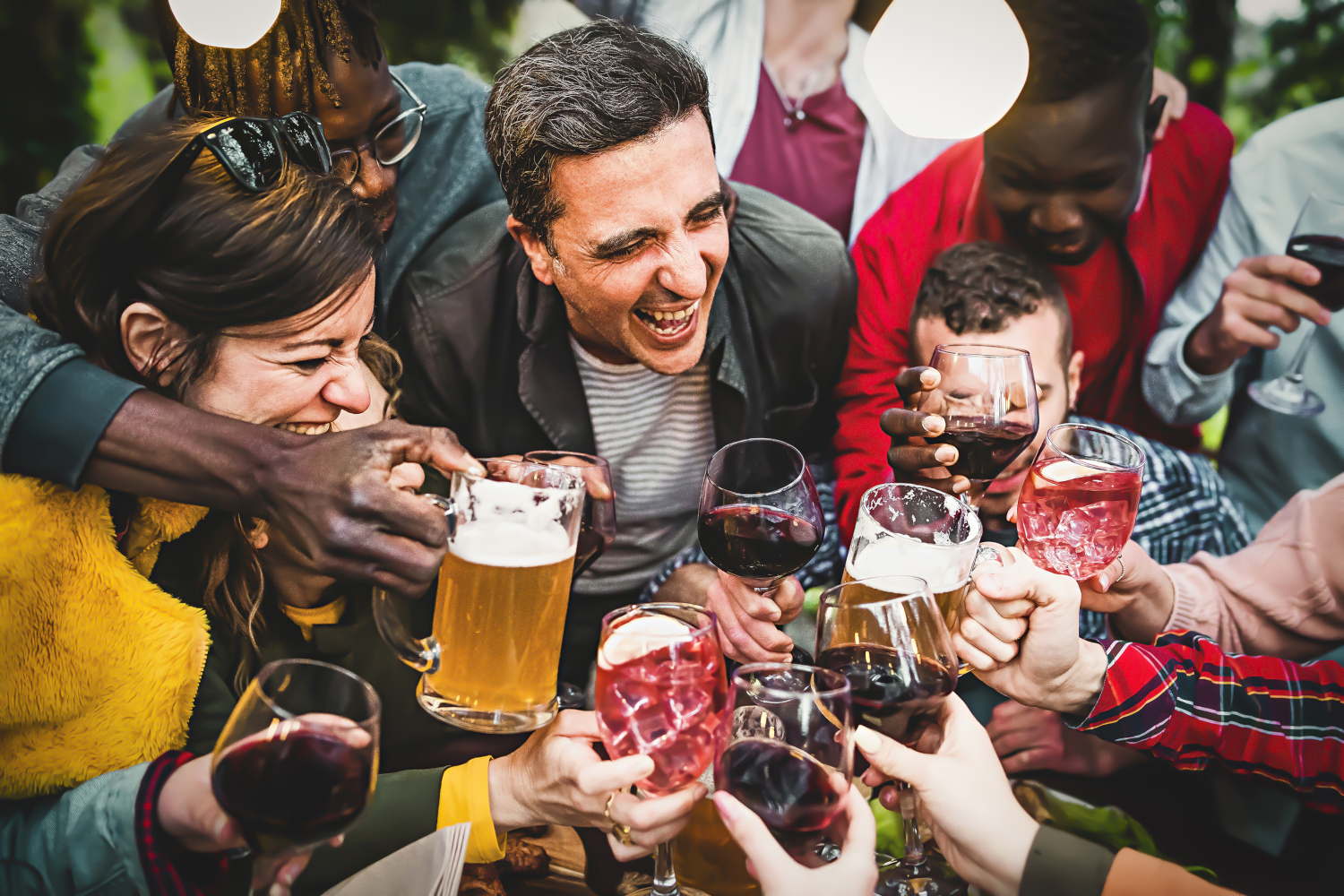If you’re ready to address a binge drinking habit, it’s important to understand what it is, its effects, and how you can develop a healthier relationship with alcohol. Here are some tips to help you on this journey.
What is Binge Drinking?
Binge drinking involves consuming a large amount of alcohol in a short period, enough to raise your blood alcohol concentration (BAC) to 0.08% or higher. This usually means about four or more drinks for an adult female or five or more drinks for an adult male within two hours.
While often associated with high school or college parties, binge drinking can occur at any age. Research shows that the habit is increasing among older adults.
Even if binge drinking seems harmless at the moment, it often leads to regrettable choices and consequences such as headaches, nausea, poor sleep, and feelings of shame or embarrassment about actions taken while intoxicated.
Are You Binge Drinking?
Many people enjoy occasional drinking, but binge drinking involves consuming enough alcohol in a short period to become legally intoxicated. Here are some signs you may be binge drinking:
- Drinking More Than Intended: You start with the intention of having one or two drinks but end up having many more.
- Difficulty Stopping: You find it hard to stop once you start drinking.
- Blackouts: You experience memory loss or fragmented memories after drinking.
- Feelings of Guilt: You often feel guilty or ashamed about your drinking habits.
- Worsening Mental Health: Your mental health symptoms worsen after drinking.
- Reckless Behavior: You engage in risky behaviors while intoxicated.
The Connection Between Binge Drinking and Alcohol Abuse
While not everyone who binge drinks is dependent on alcohol, frequent binge drinking increases the risk of developing an alcohol abuse problem. Tolerance can build up, leading to more frequent drinking sessions and fewer days of abstinence in between.
Why Do People Binge Drink?
Understanding the factors that drive binge drinking can help you address the behavior. Common motivations include:
- Stress Relief: Using alcohol to self-medicate symptoms of depression, anxiety, or stress.
- Boredom or Loneliness: Drinking to fill a void when feeling isolated or lacking purpose.
- Social Anxiety: Using alcohol to feel more relaxed and confident in social situations.
- Peer Pressure: Drinking to fit in or impress others.
- Personality Traits: Impulsiveness or a desire for new experiences can increase the likelihood of binge drinking.
Effects of Binge Drinking
Understanding the consequences of binge drinking can motivate you to cut back. Binge drinking can lead to:
- Alcohol Poisoning: Life-threatening consequences like reduced heart rate, breathing, and body temperature.
- Chronic Physical Conditions: Increased risk of high blood pressure, heart disease, stroke, digestive problems, and liver disease.
- Weight Gain: High-calorie alcoholic beverages can lead to weight gain.
- Cancer: Increased risk of cancers, including mouth, throat, esophagus, breast, liver, and colon cancer.
- Impaired Memory and Learning: Affects working memory and learning capabilities.
- Mental Health Problems: Worsens symptoms of depression, anxiety, and sleep disorders.
How to Stop Binge Drinking
If you want to reduce or stop binge drinking, consider these strategies:
- Set a Limit: Decide on a drink limit before you go out and stick to it.
- Drink More Water: Alternate alcoholic beverages with water to slow down your drinking.
- Take Small Sips: Sip your drinks slowly and mindfully.
- Eat Before Drinking: A full stomach can help you drink less.
- Avoid Keeping Alcohol at Home: Make it less convenient to drink at home by not storing alcohol.
Practice Resisting Peer Pressure
If someone pressures you to drink more, be firm in saying no. Have a simple, polite response ready, such as “No, thank you,” or “I have to get up early tomorrow.” If necessary, avoid people who pressure you to drink or who frequently engage in binge drinking.
Managing Social Anxiety
If you drink to calm your nerves in social situations, try these healthier approaches:
- Breathing Exercises: Slow, controlled breathing can reduce stress and anxiety.
- Focus Outward: Pay attention to what others are saying and doing rather than your own internal feelings.
- Challenge Negative Thoughts: Replace negative self-talk with more realistic, positive thoughts.
How to Help Someone Who Binge Drinks
Supporting a loved one who binge drinks can be challenging. Here’s how you can help:
- Pick the Right Time: Talk to them when they’re sober and you can have an uninterrupted conversation.
- Be Respectful and Honest: Express your concerns without being judgmental.
- Expect Pushback: They might deny the problem or react defensively. Stay calm and compassionate.
- Keep Trying: If they initially deny having a problem, revisit the conversation later.
Supporting Change
If your loved one is ready to change, help them by:
- Making a Plan: Help them set specific goals for reducing or quitting drinking.
- Setting an Example: Avoid excessive drinking yourself.
- Pursuing New Interests: Encourage activities that don’t involve alcohol.
- Being There in Times of Stress: Offer support and alternative ways to cope with negative emotions.
Remember, while you can support and encourage your loved one, you cannot control their behavior. Focus on being a positive influence and offering support without trying to enforce their decisions.

